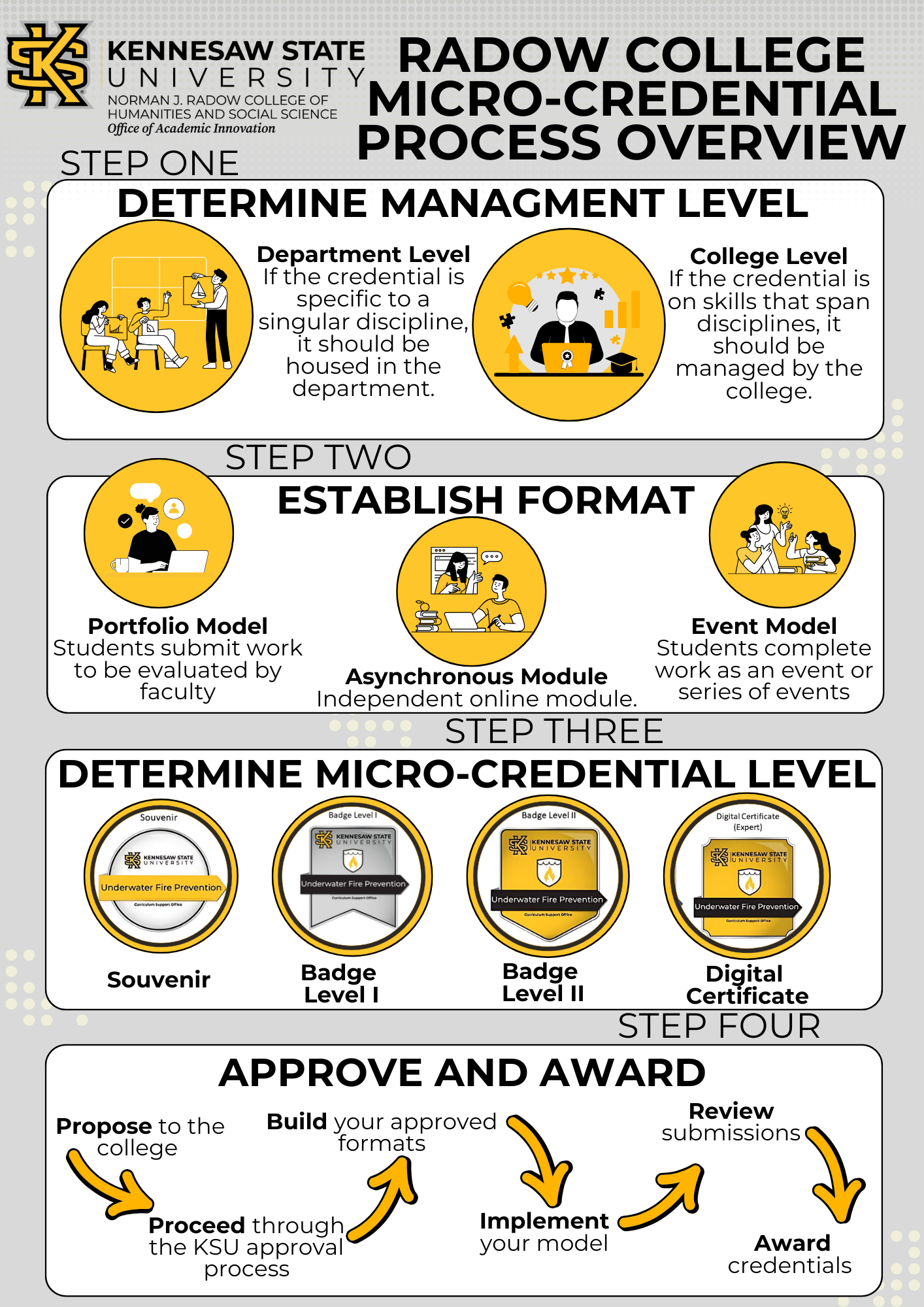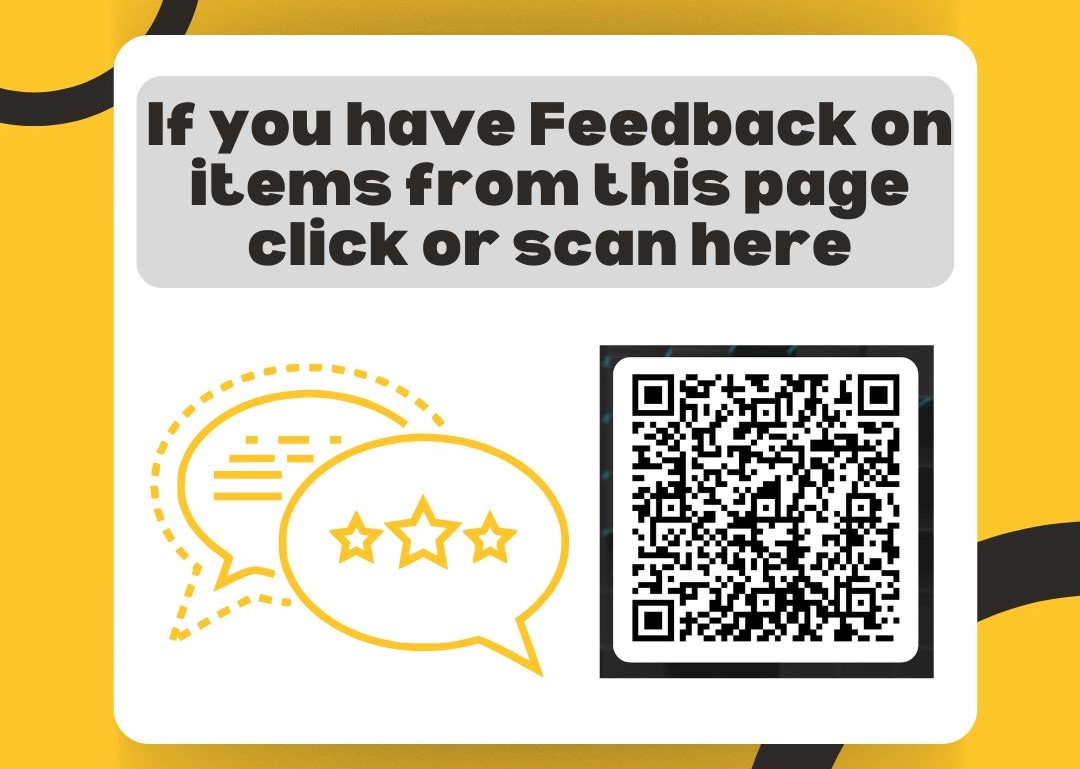Micro-credentials recognize a learner’s successful completion of educational activities that lead to professional skills and competencies. Micro-credentials can be earned in a shorter timeframe than traditional academic credit and can be granted for any kind of learning initiative.
All of the micro-credentials offered through the Norman J. Radow College of Humanities and Social Sciences can be found on student facing page here.
One survey noted that 75% of employers found resumes failed to showcase soft skills. Employers are 72% more likely to hire a candidate who has earned a micro-credential.
Micro-credential Faculty FAQ
-
How do I propose a micro-credential?
Here is a fillable worksheet for assisting with outlining the process. Please reach out to the Associate Dean of Academic Affairs before submitting any credential!
Here is an image with an overview of the process.

-
Who awards a micro-credential?
The credential can be awarded by faculty or staff who have been trained in the Canvas Credential system. As this can be a timely process, the Office of Academic Innovation has developed a process which allows students to submit for a credential and staff in the office to award it.
-
What kinds of micro-credentials are there at KSU?
Currently there are two levels of badges and two levels of certificates.
Level I badges document introduction to skills and competencies gained from opportunities for personal, career, and professional development. Level I Badges should demonstrate learning, but not mastery, and involve practicing skills and competencies in a simulated environment.
Level I badges can be "stacked" together into a Practiced Digital Certificate that demonstrate that a learner qualified and capable of employing a collection of competencies or industry standards in professional environments.
Level II badges document skills and competencies that have professional and career value. Learner activities should demonstrate the mastery of skills and competencies and take place in professional environments. Level II Badges require artifact(s) be submitted and assessed.
Level II badges can be "stacked" together into an Expert Digital Certificate.
More information can be found in the Micro-Credential Guide. -
What are the benefits of micro-credentials?
The ideological goals that guided our conceptualization were based on the AAC&Us findings in its 2021 report, “How College Contributes to Workforce Success,” which noted that “Employers do not believe most graduates possess the level of preparedness need for workforce success.” The elements that many employers identified as “very important,” focused on skills rather than subject matter expertise.
In addition to focus on career preparedness, we wanted to ensure that what our college offers is available to all students on campus as the value of these workforce readiness skills transcends any single major. We also wanted to ensure that there was a way for students to progress and scaffold their skills, so they could demonstrate a range of knowledge and a clear level of expertise.
In addition, employers increasingly recognize and value industry micro-credentials as Digital Badges offer an evidence based record of student achievements that can help them demonstrate their workforce readiness and set them apart from others.
-
How can I incorporate an existing micro-credential into my course?
You can use a micro-credential in your class in courses two ways:
1) Download the badge module as a SCORM file and import it into your D2L course shell. Please follow this Guide for Accessing and Importing a SCORM file into Your Course. See the SCORM file links above.
or
2) Copy the direct link from OwlTrain (Percipio) to a specific module and embed that into your D2L shell. You can also embed a link directly into your syllabus, assignments, or other materials. If you need access to a SCORM file, please reach out to the OAI email address OAI@kennesaw.edu -
Are micro-credentials an academic credential?
No, these are focused on skill or competencies. They are not academic credentials.













